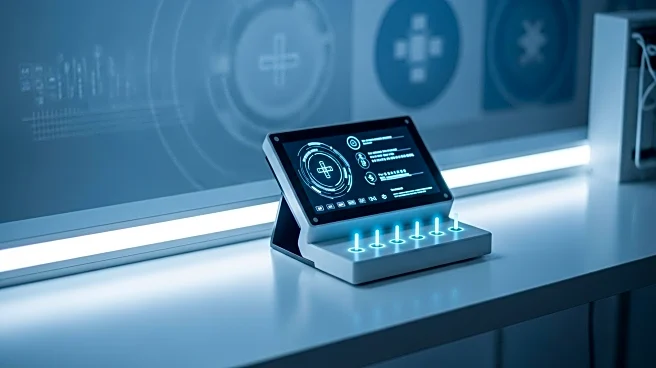What's Happening?
Kihealth Inc., a precision diagnostics company, has successfully closed a $5 million seed funding round to support the commercial rollout of its groundbreaking diabetes diagnostic test. This minimally invasive test measures biomarkers of beta cell apoptosis, providing early detection of insulin resistance and chronic diseases such as diabetes. Developed in collaboration with leading academic researchers, the test offers unprecedented insight into pancreatic beta cell viability from a simple blood draw. Kihealth's platform aims to open a $2 billion diagnostics market with virtually no direct competitors, enhancing early and accurate disease detection and increasing the pool of patients eligible for intervention.
Why It's Important?
The development of Kihealth's diagnostic test represents a significant advancement in preventive medicine, offering healthcare providers the ability to act before overt disease manifests. This innovation empowers patients with clarity regarding their health status and enables pharmaceutical companies to deliver more targeted and effective therapies. By providing measurable biomarkers to track treatment impact and long-term outcomes, Kihealth's platform could redefine the standard of care for obesity, diabetes, and other metabolic health issues. The test's ability to stratify high-risk individuals and optimize patient management could lead to more efficient clinical trials and improved patient outcomes.
What's Next?
Kihealth plans to continue building a pipeline of minimally invasive diagnostics to uncover hidden disease processes earlier and with greater precision. The company aims to empower patients, providers, and partners with actionable insights, potentially transforming the landscape of metabolic health and disease prevention. As the commercial rollout progresses, Kihealth may attract further investment and partnerships, enhancing its capacity to innovate and expand its diagnostic offerings.
Beyond the Headlines
The ethical implications of early disease detection and intervention are significant, as they raise questions about patient privacy, data security, and the potential for overdiagnosis. Kihealth's approach to precision diagnostics could also influence healthcare policy, encouraging a shift towards preventive care and personalized medicine. Long-term, this innovation may contribute to reducing healthcare costs by preventing the progression of chronic diseases and minimizing the need for more invasive treatments.










